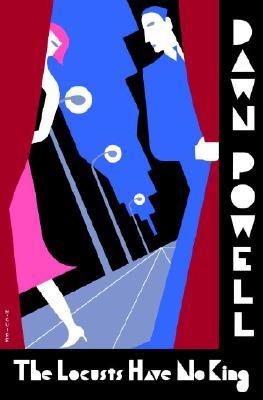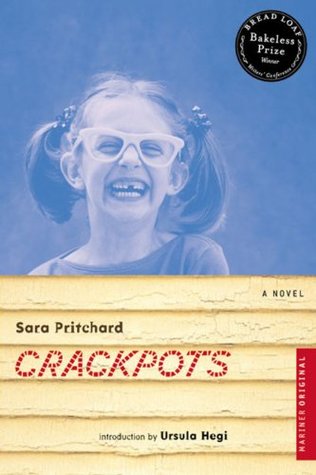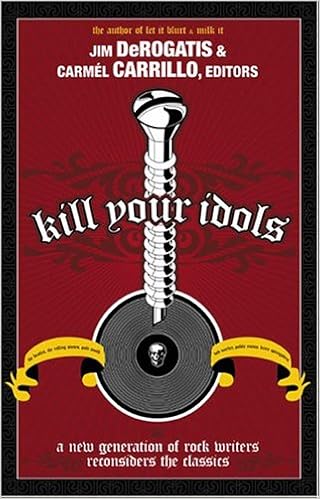Debates about literary worth often become perfectly ridiculous, a blurry food fight at best, playground taunts of a lower grade. On the subject of the greatest 100 novels written in English this century, I was momentarily smug when I realized that I'd read 75 of the bunch, but appreciated the misgivings of reader factions who felt that their groups, their "voices" had been ignored, shunted to the side, 'marginalized" , with the editors making inadequate efforts to broaden the Canon. But the real use of such list, I think, is to start a controversy, to get a debate going about what makes a good novel, and, I suppose, to have at least part of the public sphere be about something other than whether a sitting president did the wild thing with an intern in a broom closet just off the White House pantry. Not least of all, I've had more conversations, well-mannered debates (!) as to what constitutes a great novel, and most of these chats have gone a step further and dealt with, oddly, why literature is important to a society and culture such as ours. The talks have been stimulating, and, since I work in a bookstore, sales of novels have been brisk, and this due to a high-flying list that pleased no one. Let's have more, and let's rescue literature from the academics, who've abandoned any certainty in their analysis.
For the greatest novel in America, I vote for "Underworld" by Don DeLillo. Really, no one writes better prose than he does, and the scope of this novel, comprising a hidden history of America in the second half of the century, races past Pynchon and Gaddis and Mailer and Oates, all writers deserving of Nobel Prizes. DeLillo's efforts to show America as a multi-platformed myth, is grand and achieves a sustained poetics. DeLillo's plot-lines mirror a sense of America itself, being less a collection of lines that meet to some pre-determined point where greatness is conferred at the completion of heroic tasks, but rather than as mass of intersections that criss-cross one another, each with a version of the story told in a personalized language that stems from a world that is complete unto itself, a race of voices and noise that is a churning vat whose parts won't meld. DeLillo's work, it seems, will survive the withering dismissals of affected yokels, and "great American novels" continue to be produced yearly, quite despite our obsession to narrowing the field to only a handful of worthies who fulfill criteria no can state for sure. But DeLillo stands poised for world-greatness because he brings Americans into the larger world, where qualities of being American, imagined by our civics teachers as being divinely granted, has no bearings in a world that seems incoherent and supremely foreign. DeLillo's work, in "The Names", "Mao II", "Players", have Americans of a sort--professionals, artists, intellectuals, poets, usually white, privileged--losing themselves amid the shifting and renegotiated narratives, collective and personal, that are repeated, ala mantras, to give the world as sense of reason and purpose beyond the hurly-burly of the phenomenal world. This is a sphere where the sense of the world, our strategies and accounts to deal with it, are fed to media and then sold back to us with conditions attached. I imagine a work that is equal parts Henry James, for the aspect of Americans confronting the non-American world, and Orwell's "Animal Farm", where we have the pigs, in the dead of night, with ladder and paint brush, changing the wording on the social contract painted on the side of the barn.
DeLillo, as well, deals with Americans in America, thankfully, and masterstrokes like "White Noise", "Great Jones Street" (an amazing rock and roll novel whos"Underworld e hero could be Dylan, Bowie, or Cobain), and ultimately " sift through the loss ourselves in our own country. Our stories are modified and changed; our Gods change their minds about ultimate truths as technology forces more secrets and incompressibility upon us. "Underworld" is a tour where history is not just forgotten, is not just pushed to the margins in favor or a Grand Narrative, but is in fact disposed of, thrown away when the metaphysical argument no longer suits the immediate need.
The search for the baseball is analogous to a journey back to some Eden that never existed. DeLillo, to my perhaps exclusionist sensibilities, has all these elements. But topicality is not what DeLillo is about; the currency of his plots is believable starting points for his investigations into the nature of our language, of how we address ourselves. His books, I think, have enough for generations of readers and critics to study and discuss for decades to come. He writes broadly enough, and well enough, to side step victim-hood as a consideration and force readers, and critics for that matter, to study the performance of literature, the literary act itself. There is no "last analysis" to be had just yet, and for DeLillo's sake, I hope he writes a few more novels before we start issuing forth career-ending appraisals of his body of work. I am an obvious DeLillo partisan, but I don't think everything he's done is fully rendered, satisfying every idiosyncratic standard a "serious" reader might contrive, but the fact is that DeLillo is not a novel-a-year contestant with Updike or Joyce Carol Oates, or recently, Mailer, all of whom seem in a rush to consolidate reputations and make themselves nice and shiny for Nobel consideration. DeLillo has published a mere 11 novels since 1969, hardly an overload for almost thirty years as a professional writer.
That he has themes that re-emerge from work to work is to be expected from a writer, and for DeLillo, his investigations into what we too- easily refer to as post-modernism (yes, I am guilty as charged) and its accompanying paranoia have produced major fiction, which is about, in too-broad a summary of his work, the difficulty of living in a world that has been stripped of any resonance of meaning, any suggestion of Truth, capital "t". This is a kind man-made environment that stems from the make-it-new innovations of High Modernism, and entering the next century with a sense that we have not learned anything despite high-speed technologies that shoot raw and indigestible mounds of data from one place to another.
It's not a matter of us finding our "Moby Dick" for this century, because that places a false premise from which we expect writers to operate from. Yes, there is the anxiety of influence and the desperate writing younger scribes do to escape from under the long, inky shadow of the geniuses of the recent and less recent past, but I think each period is unique, and that great work is produced in some concentration of creative frenzy that dissolves the anxiety.
Readers looking for another "Moby Dick" for this century are better served to consider their period unique and regard the tradition as a lineage that is not a straight, paved highway that vanishes into a classically defined set of particulars every would be master adheres to, but is rather a broken, dotted line that threads and weaves through a loose cluster of tendencies in the culture, filled with writers who redefine themselves and their art each time out. Melville himself had to break with his own habits, transcending his discipline as a clever crafter of sea stories, a venerable genre he arrived at, to write the masterpiece called "Moby Dick". The best writers today do no different, living up to the nothing else other than the authenticity of their process. Faulkner and Joyce have comparable greatness, I feel, but I cannot escape the feeling that Joyce was the brainier of the two. Joyce’s' infinite layering of literature, history, theology and myth in to the molecular structures of Ulysses and Finnegan’s Wake demonstrates someone with a sensibility that subtly wishes to have Art supplant the Church as the institution men may comprehend a Higher Truth( whatever it turns out to be).
His own dialectic method, perhaps. I tend to agree with the remark of Faulkner being much blunter, though he is scarcely a brute: the sensationalism Faulkner could give into was also linked to a patch of swamp that released his language, and allowed him to master the interior monologue. This gave us novels like "Light In August" and "Absalom, Absalom" that had with diverse psychological density.” The human heart at war with itself. “Bullshit has its place, and in fiction, it can be the sole redemptive element of any other questionable writing enterprise. Depends on the bullshit being slung, I guess, which again reaches back to how well one can sling a yarn.
What Joyce slung certainly vanished over the horizon and broke some windows in transit.
 A New York comedy of manners set in the Forties, it concerns a married couple comprised of a famous playwright and her husband, an academic who labors at his specialty in obscurity. Powell is one of the better comic writers we've had --a spikier Edith Wharton, shall we say--who provides momentum, atmosphere and rich, crackling dialogue in this many -charactered satire. This would be the sort of novel Tom Wolfe has been trying to write for years. We have here a situation where the fortunes of famous wife and unknown husband are suddenly and realistically reversed, a turn that reveals the shallow relations and loyalties, tied as they are to one's fortunes. Or lack of them. Fittingly, there are no actual heroes in this satire--even those who achieve much after a time of ironic and unfair adversity remain wholly human and subject to the fallible instincts of an egocentric world view. Dawn Powell is a joy t read.
A New York comedy of manners set in the Forties, it concerns a married couple comprised of a famous playwright and her husband, an academic who labors at his specialty in obscurity. Powell is one of the better comic writers we've had --a spikier Edith Wharton, shall we say--who provides momentum, atmosphere and rich, crackling dialogue in this many -charactered satire. This would be the sort of novel Tom Wolfe has been trying to write for years. We have here a situation where the fortunes of famous wife and unknown husband are suddenly and realistically reversed, a turn that reveals the shallow relations and loyalties, tied as they are to one's fortunes. Or lack of them. Fittingly, there are no actual heroes in this satire--even those who achieve much after a time of ironic and unfair adversity remain wholly human and subject to the fallible instincts of an egocentric world view. Dawn Powell is a joy t read. I always had a wager with anyone who knew Wallace Stevens or John Ashbery well enough, or The Bard for that matter would feel compelled to harm themselves as a means to relieve the disgust that overwhelms them. On the other side of this genre, though, was a generally good musician and an honest desire to extend rock's instrumental bearings toward more complexity. Yes, ELP, Pink Floyd, Jethro Tull, King Crimson, Genesis all moved in this direction, at best being brilliant wit the snap and zip of odd time signatures, odd keys and ensemble stretch consisting of many moving parts.
I always had a wager with anyone who knew Wallace Stevens or John Ashbery well enough, or The Bard for that matter would feel compelled to harm themselves as a means to relieve the disgust that overwhelms them. On the other side of this genre, though, was a generally good musician and an honest desire to extend rock's instrumental bearings toward more complexity. Yes, ELP, Pink Floyd, Jethro Tull, King Crimson, Genesis all moved in this direction, at best being brilliant wit the snap and zip of odd time signatures, odd keys and ensemble stretch consisting of many moving parts. 








